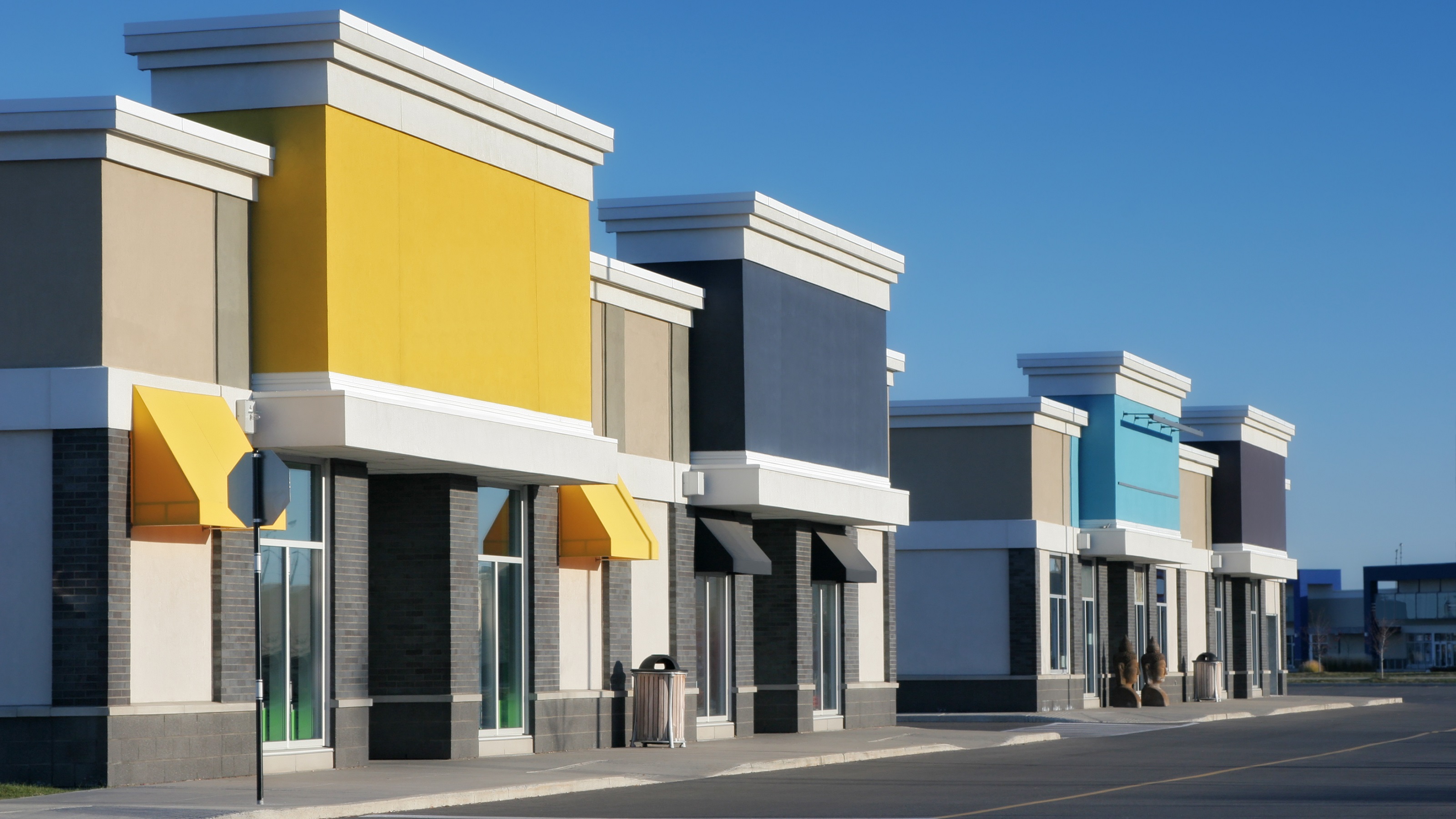
Profit and prosper with the best of Kiplinger's advice on investing, taxes, retirement, personal finance and much more. Delivered daily. Enter your email in the box and click Sign Me Up.
You are now subscribed
Your newsletter sign-up was successful
Want to add more newsletters?

Delivered daily
Kiplinger Today
Profit and prosper with the best of Kiplinger's advice on investing, taxes, retirement, personal finance and much more delivered daily. Smart money moves start here.

Sent five days a week
Kiplinger A Step Ahead
Get practical help to make better financial decisions in your everyday life, from spending to savings on top deals.

Delivered daily
Kiplinger Closing Bell
Get today's biggest financial and investing headlines delivered to your inbox every day the U.S. stock market is open.

Sent twice a week
Kiplinger Adviser Intel
Financial pros across the country share best practices and fresh tactics to preserve and grow your wealth.

Delivered weekly
Kiplinger Tax Tips
Trim your federal and state tax bills with practical tax-planning and tax-cutting strategies.

Sent twice a week
Kiplinger Retirement Tips
Your twice-a-week guide to planning and enjoying a financially secure and richly rewarding retirement

Sent bimonthly.
Kiplinger Adviser Angle
Insights for advisers, wealth managers and other financial professionals.

Sent twice a week
Kiplinger Investing Weekly
Your twice-a-week roundup of promising stocks, funds, companies and industries you should consider, ones you should avoid, and why.

Sent weekly for six weeks
Kiplinger Invest for Retirement
Your step-by-step six-part series on how to invest for retirement, from devising a successful strategy to exactly which investments to choose.
The landscape for commercial real estate may look dismal from afar with high interest rates and an office space market still in shakeout mode, but pockets of opportunity remain for investors with the right approach and strategy.
Some — but by no means all — commercial real estate segments (particularly the office market) bore the brunt of the post-COVID upheaval. Even prime properties have seen ratings downgrades. Community and regional banks have been reluctant to enter the space as bank regulators and rating agencies keep a keen eye on exposure to deals on shaky footing.
But in spite of those developments, there are categories that look attractive for investors, including the retail, industrial and hotel sectors.
From just $107.88 $24.99 for Kiplinger Personal Finance
Become a smarter, better informed investor. Subscribe from just $107.88 $24.99, plus get up to 4 Special Issues

Sign up for Kiplinger’s Free Newsletters
Profit and prosper with the best of expert advice on investing, taxes, retirement, personal finance and more - straight to your e-mail.
Profit and prosper with the best of expert advice - straight to your e-mail.
Major fund sponsors are creating new vehicles for investment. Sellers are accepting deals they wouldn’t have considered a year or even six months ago. The seemingly unyielding rise in interest rates may be coming to an end, considering Fed officials’ recent comments.
“Hot” markets such as Austin and Phoenix are still relatively highly valued and probably best avoided. But potential returns are inviting in some smaller markets like San Antonio, Albuquerque, Birmingham and Tulsa.
Some long-term opportunities
There are some good long-term opportunities, too, in the Northeast and Midwest. Milwaukee and Detroit have stabilized. Minneapolis has a stable of Fortune 500 companies, a strong university presence and a great recreational market, making it an interesting prospect. Indianapolis is among the Rust Belt communities seeing growth with what appears to be a resilient economy that is home to several companies with staying power.
Boston, Philadelphia and Atlanta have diverse business bases, as does Washington, D.C., which is also getting Amazon’s HQ2 and has the federal government ordering workers back to the office. Newark, N.J., still gets a lot of bad press, but the logistics and industrial market there is second to none.
Still, there aren’t shiny deals under every rock. Lenders won’t touch San Francisco, for example. The city has lost a material portion of its talent base, and the appeal of its natural beauty has waned in view of other detractions. It’s going to take a lot to bring the city back.
Financing and interest rates are a hurdle
More broadly, despite the opportunities and the easing of rising interest rates, financing remains a hurdle. When debt isn’t available, a potential buyer needs to find a seller that’s willing to carry the mortgage while the property is leased, renovated or otherwise set up to make money. It’s going to take creative financing to make the market come back to full health.
A buyer who is fiscally prudent on the management side — that means not spending money on amenities that have no value to a tenant — and a reasonable medium- to long-term view on real estate will be able to find deals that generate positive cash flow, even before tax benefits.
There remains a great deal of uncertainty and turbulence in the commercial real estate sector. As the bottom fell out of the office market, rates were changing so fast people couldn’t figure out what buildings were worth.
But by this time next year, it should be clear that cap rates and yields have peaked. Property values are very likely to rise, and many investors will wish they had been more aggressive. Those who did buy will be able to refinance and see respectable returns.
Be aware, too, there are new complexities. Artificial intelligence, for example, will be a game changer for real estate just as it will be in other industries. Not only will the way properties are analyzed and managed changed — the tenants and users of buildings are likely to be changed by AI, too.
What will become of the office market?
As for the current ugly duckling: The office market will at some future point come back. Many people are finding it’s not as easy to work from home now that not everyone is doing it. Companies and bosses are fully cognizant that innovation and productivity were higher with workers gathering in proximity to one another. While versions of remote work will persist, there’s now a clear trend back to a more traditional direction.
The pandemic created a wildly distorted market, and investors are always spooked by market distortions. Some commercial real estate sectors have taken the brunt of that impact, but commercial real estate overall will continue to be a stable asset class.
And any investor who’s not searching for cash flow-positive deals is likely to regret it next year.
related content
- WFH Impact on Commercial Real Estate Market: Kiplinger Economic Forecasts
- How Commercial Real Estate Investing Can Add Balance to Your Portfolio
- REITs Unveiled: A Comprehensive Guide for Investors
- Qualified Opportunity Zones With an Energy Boost
- One Way to Stay Ahead of Inflation: Qualified Opportunity Funds
Profit and prosper with the best of Kiplinger's advice on investing, taxes, retirement, personal finance and much more. Delivered daily. Enter your email in the box and click Sign Me Up.

Jim Small is the Founder/CEO of Sante Realty Investments, an impact-based real estate company. For over 10 years, he has partnered with ultra-high-net-worth individuals and family offices to acquire and manage thousands of multifamily assets across the U.S. and Europe, generating consistent returns and positive social impact.
-
 Nasdaq Leads a Rocky Risk-On Rally: Stock Market Today
Nasdaq Leads a Rocky Risk-On Rally: Stock Market TodayAnother worrying bout of late-session weakness couldn't take down the main equity indexes on Wednesday.
-
 Quiz: Do You Know How to Avoid the "Medigap Trap?"
Quiz: Do You Know How to Avoid the "Medigap Trap?"Quiz Test your basic knowledge of the "Medigap Trap" in our quick quiz.
-
 5 Top Tax-Efficient Mutual Funds for Smarter Investing
5 Top Tax-Efficient Mutual Funds for Smarter InvestingMutual funds are many things, but "tax-friendly" usually isn't one of them. These are the exceptions.
-
 Social Security Break-Even Math Is Helpful, But Don't Let It Dictate When You'll File
Social Security Break-Even Math Is Helpful, But Don't Let It Dictate When You'll FileYour Social Security break-even age tells you how long you'd need to live for delaying to pay off, but shouldn't be the sole basis for deciding when to claim.
-
 I'm an Opportunity Zone Pro: This Is How to Deliver Roth-Like Tax-Free Growth (Without Contribution Limits)
I'm an Opportunity Zone Pro: This Is How to Deliver Roth-Like Tax-Free Growth (Without Contribution Limits)Investors who combine Roth IRAs, the gold standard of tax-free savings, with qualified opportunity funds could enjoy decades of tax-free growth.
-
 One of the Most Powerful Wealth-Building Moves a Woman Can Make: A Midcareer Pivot
One of the Most Powerful Wealth-Building Moves a Woman Can Make: A Midcareer PivotIf it feels like you can't sustain what you're doing for the next 20 years, it's time for an honest look at what's draining you and what energizes you.
-
 I'm a Wealth Adviser Obsessed With Mahjong: Here Are 8 Ways It Can Teach Us How to Manage Our Money
I'm a Wealth Adviser Obsessed With Mahjong: Here Are 8 Ways It Can Teach Us How to Manage Our MoneyThis increasingly popular Chinese game can teach us not only how to help manage our money but also how important it is to connect with other people.
-
 Looking for a Financial Book That Won't Put Your Young Adult to Sleep? This One Makes 'Cents'
Looking for a Financial Book That Won't Put Your Young Adult to Sleep? This One Makes 'Cents'"Wealth Your Way" by Cosmo DeStefano offers a highly accessible guide for young adults and their parents on building wealth through simple, consistent habits.
-
 Global Uncertainty Has Investors Running Scared: This Is How Advisers Can Reassure Them
Global Uncertainty Has Investors Running Scared: This Is How Advisers Can Reassure ThemHow can advisers reassure clients nervous about their plans in an increasingly complex and rapidly changing world? This conversational framework provides the key.
-
 I'm a Real Estate Investing Pro: This Is How to Use 1031 Exchanges to Scale Up Your Real Estate Empire
I'm a Real Estate Investing Pro: This Is How to Use 1031 Exchanges to Scale Up Your Real Estate EmpireSmall rental properties can be excellent investments, but you can use 1031 exchanges to transition to commercial real estate for bigger wealth-building.
-
 Should You Jump on the Roth Conversion Bandwagon? A Financial Adviser Weighs In
Should You Jump on the Roth Conversion Bandwagon? A Financial Adviser Weighs InRoth conversions are all the rage, but what works well for one household can cause financial strain for another. This is what you should consider before moving ahead.
